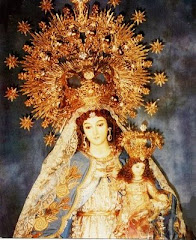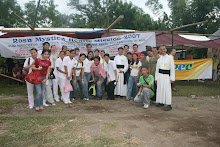| The organizer and the locals |
| Floating houses of the marsh built on stilts. |
Five hours drive from General Santos City and 30 minutes boat ride (speed boat running at 70kilometers per hour) is what it takes to reach this mission area. It was once an MILF infested area, where hostages of the most hostile kidnappings were recovered and houses were built on stilts about 3 meters above the water.
| Our mode of transportation going to the mission area. |
| The mission venue. Barangay captain's house that also functions as the barangay hall. |
A small medical team from Department of Health ARMM (Autonomous Region of Muslim Mindanao) and ACIM Asia went for a medical civic action program initiated by the 11th Special Force of the Philippine Army in Barangay Katamlangan, Sultan Kudarat last November 24, 2011. The barangay is discreetly located in a marsh Moslim community that is only reached through water transportation such as the boats/speed boats.
Civil Affairs Team of US Army also joined the activity of the 11th Special Force that is a special unit of Philippine Army who maintained the peace and order development in the area. It was held in the house of the barangay captain, which is also the hall of the barangay.
| Patients coming into the mission site to avail of the free medical services. |
| Assessment and Registration area. |
Department of Health ARMM and ACIM Asia provided medical volunteers, and medicines that were used in the mission. There was only one doctor who served, but she managed to cater 150 medical patients, who paddled their way to avail of the free consultation, health assessment and medications.
Most of the patients are Moslems that were economically marginalized because they are torn by the consistent conflicts between the rebels and the army. They are also situated in a warzone area that is obviously cannot be accessed easily. Generally, a family’s source of income is through fishing, which is also a struggle because it is only the means of survival for almost everyone.
| The medical doctor from the DOH, side by side with the assessment team. |
| Patients waiting for their names to be called in the pharmacy. |
This kind of situation places health care as their list priority, not only because it is difficult to be accessed topographically but also they don’t see its necessity. These also results to a high calibre kind of diseases and chief complaints they cannot express. Although there were less people who came, a day is not enough to address their needs.
The special force unit was planning to implement livelihood projects and various civic action programs for these communities, not only to neutralize the conflict but also to provide the people long term empowerment.



1 comment:
Salamat for the news and the mission!Ingat lagi.
Post a Comment